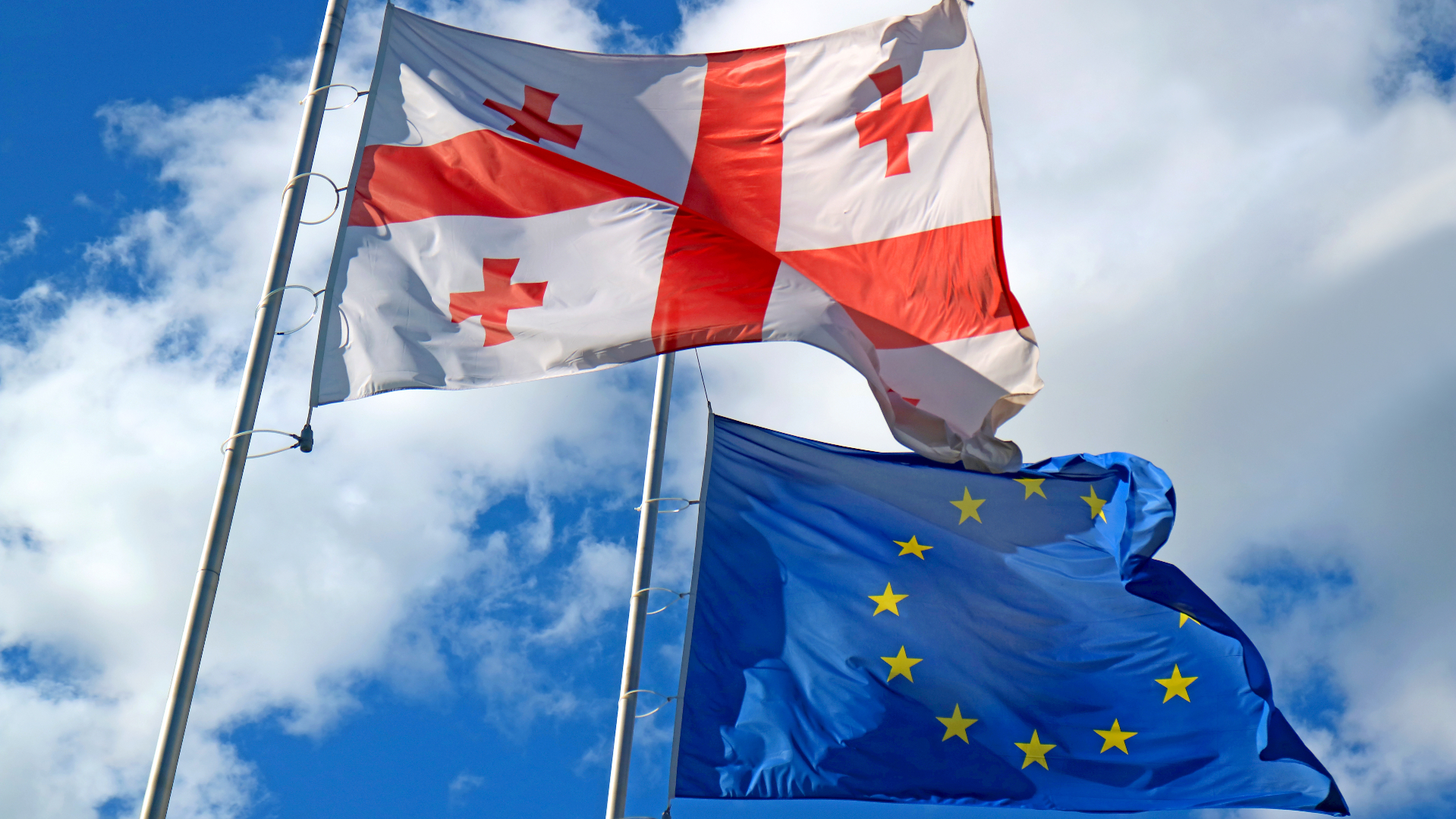“I am Georgian and, therefore, I am European” – Zurab Zhvania
Georgian history has been marked by an enduring struggle for freedom and people striving for a better, more prosperous future. Nothing embodies this aspiration better than the peaceful protest that took place on March 7 in front of the Georgian parliament. Thousands of citizens marched peacefully along Rustaveli Avenue in Tbilisi. Although they came from all walks of life, they were united by one common goal: seeking to strengthen a democratic system and pave the way for Georgia’s European future.
The peaceful protest took place after lawmakers voted 76-13 in the first reading of the draft of the “foreign agent” legislation in a ballot that was originally scheduled for March 9. The second and third readings are also scheduled to follow, but given the voting margin, the bill is expected to pass.
According to the legislation, any entities which are not established by the state and receive 20 percent of their annual revenue from “foreign sources” must be designated as “foreign agents” and registered with that label. Those who do not comply with the rules may face severe fines and even detention.
Despite the ruling party’s assertion that the law was modeled on the United States’ FARA legislature, the international community was quick to condemn such propositions and emphasized the many similarities between the “foreign agent law” in Georgia and the already existing oppressive legislation in Russia.
The law will undermine the operation of a plethora of non-governmental organizations and independent media sources and will cause insurmountable problems for Georgian civil society. We can foresee the above-mentioned consequences based on empirical evidence provided by the similar legislation that applies in the Russian Federation.
The term “foreign agent” in Russia’s vocabulary is tantamount to “spy” or “traitor.” Therefore, the law has no neutral connotation and is designed to oppress, chastise, stigmatize, and silence the people who voice their independent opinions.
When the first foreign agent law was adopted in Russia in 2012, only registered organizations were considered “foreign agents.” Nonetheless, the application of the amendment cumulatively expanded to media, associations without legal entities, and certain individuals.
Eventually, the adoption of the “foreign law” in Russia severely limited the scope of civic groups and activists, including those who worked in the domain of human rights, environmentalism, and anti-corruption.
A large number of organizations even had to disband as they sought to avoid the fines, limitations and burdensome labels for not complying with the reporting requirements. Finally, in 2022, the European Court of Human Rights ruled that Russia’s “foreign agent law” violated the rights of these civil society groups.
Based on Russia’s example, it is evident that if the proposed bill passes in Georgia, as it is currently expected to, it will quell the voice of Georgian civil society and independent media. The bill will cause setbacks and present insurmountable legal challenges for Georgian civil society organizations that aim at helping women and children, people with disabilities, workers, the youth, and individuals fighting for their rights.
Under this legislation, the government will have effective leverage over civil society which will greatly limit people’s freedom of expression as guaranteed by the Georgian constitution.
Moreover, it will have serious long-term consequences for Georgia’s economic and social development. The restrictions on civil society could coerce the younger, educated generation to flee the country, which will eventually exacerbate the already critical “brain drain” from Georgia.
Therefore, just like in Russia, the proposed bill will render the Georgian state more authoritarian.
Not only will the pro-Russian “foreign agent law” curb the operation of a large number of NGOs, entities, and individuals, but it will also cast a dark shadow on Georgia’s European aspirations. In 2022, amid the catastrophic war brought about by Russian imperialism, Georgia, Ukraine, and Moldova received an unprecedented opportunity to finally embark on the journey toward European integration.
The Georgian people knew from the very beginning that the path leading to the desired European goal would be a long one with many hurdles. The European Union presented Georgia with 12 recommendations that need to be fulfilled in order to obtain candidate status. Along with these recommendations, Georgia should utilize its window of opportunity and should avoid passing legislation that fundamentally contradicts the basic values of a free society.
Freedom of expression, media transparency, and healthy opposition are one of the most important tenets of a free society. If the Georgian parliament finalizes the “foreign agent” law, it will be perilous for the country’s political goals while the notion of European integration will become irretrievably defunct.
There is also a major point of hypocrisy in that the repressive, pro-Russian law was disguised under the veil of “transparency” by the People’s Power faction. While transparency is undoubtedly a good thing, it starts to lose its definition when it is used to justify the demonization of independent civil society organizations that have contributed immensely to Georgia’s development and prosperity.
The “foreign agent law” is perilous for all of Georgian society and will derail future progress in many areas, including human rights and anti-corruption. The Georgian people will do everything to make their voices heard and defend the national and European ideals that promise us a better future.
We need not look much further than images such as that of a Georgian woman holding up a European Union flag and waving it proudly while being pushed away by the water canon to see the fierce determination of the Georgian people. This must never be forgotten.
An ominous cloud is discernible through the window of opportunity, but the Georgian people must stay vigilant and must not let the “foreign agent law” thwart the country’s European aspirations.
Russian law is not the will of Georgia!
For more content on related issues, be sure to check out our Free Society video playlist by clicking on the button below.
A version of this article was originally published on the Speak Freely website.
This piece solely expresses the opinion of the author and not necessarily the organization as a whole. Students For Liberty is committed to facilitating a broad dialogue for liberty, representing a variety of opinions.



